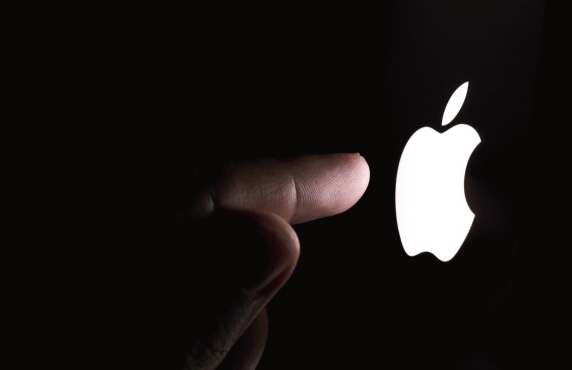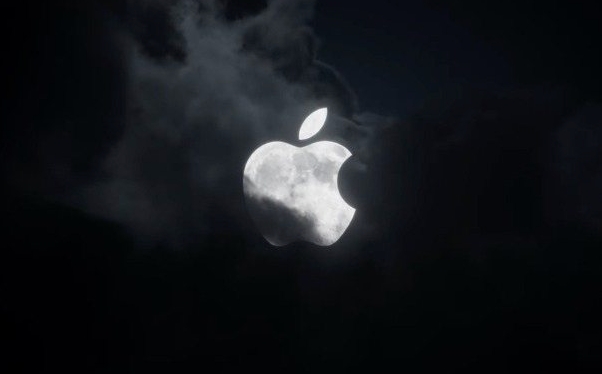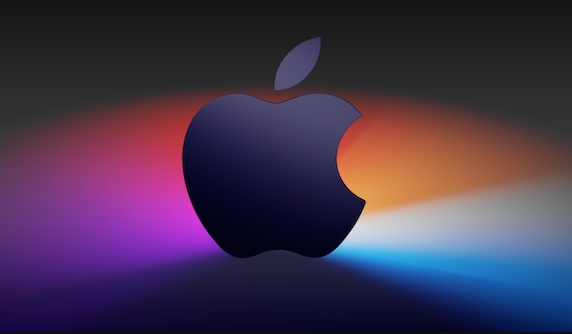Create folders and subfolders for better organization like Work, Personal, or Projects. 2. Use rich formatting with Cmd shortcuts, headings, checklists, and indentation for clarity. 3. Insert images, files, PDFs, and drawings to add context and enhance notes. 4. Apply hashtags (#work, #ideas) and use powerful search, including text within images via Live Text. 5. Enable iCloud sync to access notes across devices and share notes or folders for real-time collaboration. 6. Use Quick Notes with a trackpad gesture or keyboard shortcut to capture ideas instantly, which are saved automatically with contextual tags. By organizing notes, enriching content, and leveraging sync and search, Apple Notes becomes a powerful, all-in-one knowledge hub that is free, fast, and fully integrated across Apple devices.

Using Apple Notes on Mac can be surprisingly powerful once you know the right tricks. It’s not just a place to jot down quick thoughts — with the right habits, it can become a central hub for organizing ideas, tasks, and even collaboration. Here’s how to use it effectively.

1. Organize Notes with Folders and Subfolders
One of the biggest mistakes people make is dumping all their notes into the default “Notes” folder. To keep things manageable:
- Create folders for different areas of your life (e.g., Work, Personal, Recipes, Travel).
- Use subfolders for more granular organization (e.g., Work > Projects > Website Redesign).
- Right-click in the sidebar to create a new folder, and drag notes or folders to nest them.
This structure makes it easy to find what you need later — especially if you have dozens (or hundreds) of notes.

2. Use Rich Formatting and Checklists
Apple Notes supports more than plain text. Take advantage of formatting to make your notes clearer and more actionable.
- Press Cmd B, Cmd I, or Cmd U for bold, italic, and underline.
- Highlight text and click the Aa button to add headings, lists, or quotes.
- Create checklists using the checkbox tool (or type
- [ ]and press space).- Great for to-do lists, shopping, or project steps.
- Completed items can be hidden (right-click a checklist → “Hide Completed Items”).
You can even indent list items by pressing Tab, which helps create nested tasks or outlines.

3. Insert Media and Files for Context
Apple Notes lets you enrich your notes with visuals and attachments:
- Drag and drop images directly into a note.
- Click the camera icon to insert a screenshot or take a photo (if you have an iPhone, use Instant Notes).
- Add PDFs, documents, or spreadsheets by dragging them in — they appear as thumbnails and can be opened inline.
- On supported Macs, you can even draw or sketch using your trackpad or iPad (if Handoff is enabled).
This turns Notes into a lightweight project notebook — perfect for brainstorming, research, or collecting inspiration.
4. Use Tags and Search Smartly
While Apple Notes doesn’t have advanced tagging like some apps, you can use hashtags (#work, #ideas, #waiting) to label notes.
- Type something like
#meetingor#recipein your note. - Later, search for
#meetingin the search bar to find all related notes.
The search is powerful — it even indexes text inside images and PDFs (thanks to Live Text). So if you snap a photo of a whiteboard or a business card, you’ll be able to search for words in that image later.
5. Sync Across Devices and Share Notes
Make sure Notes is synced via iCloud (System Settings → Apple ID → iCloud → Notes). Once enabled:
- Your notes appear on iPhone, iPad, and Mac instantly.
- You can share a note or folder with others (click the share button).
- Great for collaborative lists (e.g., gift ideas, event planning).
- Shared notes support real-time editing, comments, and presence indicators.
Just remember: only share notes you’re okay with others seeing — there’s no password protection for individual notes.
6. Create Quick Notes with the Menu Bar
macOS has a Quick Note feature that lets you jot down ideas without opening the Notes app.
- Swipe with two fingers from the bottom-right corner of the trackpad (or set a keyboard shortcut in System Settings → Desktop & Dock → Quick Note).
- A small note pops up — perfect for capturing ideas while browsing or in a meeting.
- These notes are saved automatically and tagged with context (e.g., linked to a website or app).
You can also pin Quick Notes to the side of your screen for easy reference.
With a little setup, Apple Notes goes from basic to brilliant. Use folders, formatting, media, and search to turn it into a reliable knowledge hub. It’s free, fast, and already built in — so you might as well make the most of it.
Basically, keep it organized, enrich your notes, and let iCloud do the rest.
The above is the detailed content of How to use Apple Notes effectively on Mac. For more information, please follow other related articles on the PHP Chinese website!

Hot AI Tools

Undress AI Tool
Undress images for free

Undresser.AI Undress
AI-powered app for creating realistic nude photos

AI Clothes Remover
Online AI tool for removing clothes from photos.

Clothoff.io
AI clothes remover

Video Face Swap
Swap faces in any video effortlessly with our completely free AI face swap tool!

Hot Article

Hot Tools

Notepad++7.3.1
Easy-to-use and free code editor

SublimeText3 Chinese version
Chinese version, very easy to use

Zend Studio 13.0.1
Powerful PHP integrated development environment

Dreamweaver CS6
Visual web development tools

SublimeText3 Mac version
God-level code editing software (SublimeText3)

Hot Topics
 Can I Show the Dock on All Screens on Mac? Using Dock on Different Displays in macOS
Jul 03, 2025 am 09:30 AM
Can I Show the Dock on All Screens on Mac? Using Dock on Different Displays in macOS
Jul 03, 2025 am 09:30 AM
If you're using a Mac with multiple monitors, you might be curious about how to display the Dock on all screens or whether it's possible to add a Dock to secondary displays.The good news is that you can configure the Dock to appear on any screen conn
 How to Play Fortnite on Mac with FnMacAssistant & Sideloadly
Jul 05, 2025 am 09:21 AM
How to Play Fortnite on Mac with FnMacAssistant & Sideloadly
Jul 05, 2025 am 09:21 AM
Fortnite is once again available for iPhone and iPad users, bringing joy to many gamers. However, there's still no official version for Mac (at least not yet). Despite that, Apple Silicon Mac owners aren’t completely out of luck—you can run the iOS/i
 How to Remove Old Devices from Apple ID on Mac
Jul 07, 2025 am 09:08 AM
How to Remove Old Devices from Apple ID on Mac
Jul 07, 2025 am 09:08 AM
If you've owned multiple Apple devices over the years, you might find yourself in a situation where some of those older Macs, iPhones, iPads, or other Apple hardware have been sold, given away, or traded. No matter how they left your possession, it's
 How to Enable iCloud Private Relay on Mac
Jul 05, 2025 am 09:36 AM
How to Enable iCloud Private Relay on Mac
Jul 05, 2025 am 09:36 AM
iCloud Private Relay is an excellent privacy feature included with the iCloud subscription, designed to safeguard your online activity and browsing by masking your IP address (using a temporary one) and encrypting DNS lookups. This prevents third pa
 How to Allow Apps During Downtime on Mac
Jul 04, 2025 am 09:03 AM
How to Allow Apps During Downtime on Mac
Jul 04, 2025 am 09:03 AM
Are you using Screen Time to manage your or your child’s Mac usage? If yes, you likely already know that it allows you to set app limits, schedule downtime on the Mac, and more. Additionally, you can also choose specific apps that remain accessible a
 How to Make MacOS Sequoia Feel Faster: Tips to Speed Up Slow MacOS
Jul 05, 2025 am 09:28 AM
How to Make MacOS Sequoia Feel Faster: Tips to Speed Up Slow MacOS
Jul 05, 2025 am 09:28 AM
macOS Sequoia is a solid operating system that brings some impressive features like iPhone Mirroring, and while performance is excellent for many users, not everyone experiences the same level of speed. If you're finding macOS Sequoia slower than pre
 How to See All Links Shared in Messages on iPhone & iPad
Jul 05, 2025 am 09:31 AM
How to See All Links Shared in Messages on iPhone & iPad
Jul 05, 2025 am 09:31 AM
If you frequently use iMessage, then you've likely shared numerous web links in your chats — maybe an article, a video, a tweet, a song, or anything else. Locating these links later can be quite frustrating, but thankfully there's a simpler method th
 Create a MacOS Tahoe 26 Beta VM with Three Commands in Terminal Using tart
Jul 06, 2025 am 09:28 AM
Create a MacOS Tahoe 26 Beta VM with Three Commands in Terminal Using tart
Jul 06, 2025 am 09:28 AM
Advanced Mac users familiar with the command line can swiftly set up a MacOS Tahoe 26 beta virtual machine by entering a few commands into Terminal, using tart. Tart is a command-line utility for managing virtual machines and offers one of the quicke






